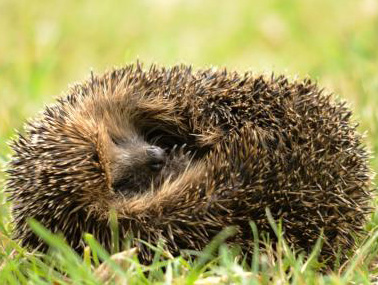Too early for hedgehogs?
A new piece of work to find out whether hedgehog numbers are being affected by climate change


It's hoped that a survey starting this month will establish whether warmer and wetter winters are causing hedgehogs to go hungry.

The People's Trust for Endangered Species (PTES) and the British Hedgehog Preservation Society want to find out whether climate change is impacting on hedgehogs emerging from hibernation. ‘Mild, wet winters are bad for mammals that hibernate,' comments PTES hedgehog officer Henry Johnson. ‘Warmer temperatures stimulate them to wake up when there's no food for them and flooding is obviously not great for animals that hibernate underground or in vegetation.
* Subscribe to Country Life and save
The PTES estimates that hedgehog numbers have plummeted from 36 million to just one million in the past 60 years due to habitat loss, a dearth of earthworms, beetles, slugs and caterpillars (due to the efficacy of pesticides), larger field sizes, predation by badgers and sterile suburban gardens. To take part, visit www.hedgehogstreet.org
* Follow Country Life on Twitter
Exquisite houses, the beauty of Nature, and how to get the most from your life, straight to your inbox.
An experienced journalist, Paula Minchin, Country Life's Managing & Features Editor, has worked for the magazine for 10 years — during which time she’s overseen two special issues guest-edited by His Majesty The King in 2013 and in 2018, and the bestselling 2022 edition masterminded by his wife, Queen Camilla. A gamekeeper’s daughter, Paula began her career as a crime reporter on The Sidmouth Herald in Devon, before becoming Pony Club & Young Rider Editor, then Racing Editor, at Horse & Hound. Paula lives in Somerset with her two working Labradors, Nimrod and Rocky.
